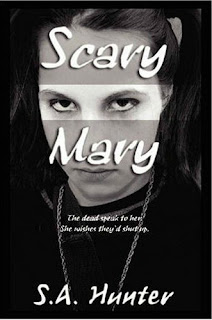You see, the thing about Chris Cleave's Little Bee is that you're not supposed to tell anyone what it's about. Even the description on the back of the book is lacking:
"We don't want to tell you what happens in this book. It is a truly special story and we don't want to spoil it. Nevertheless, you need to know enough to buy it, so we will just say this: This is the story of two women. Their lives collide one fateful day, and one of them has to make a terrible choice, the kind of choice we hope you never have to face. Two years later, they meet again -- the story starts there. Once you have read it, you'll want to tell your friends about it. When you do, please don't tell them what happens. The magic is how the story unfolds."
I'm... not... really sure why they don't want people to say what happens, because A) I don't think it would ruin anything if I were to explain the basic plot of the book, and B) I think knowing the basic plot would make people want to read it more... But whatever. I don't want to get shunned by the Little Bee fan community (if that even exists), so I'll just be really brief, OK?
- Little Bee -- that's a person. She's a Nigerian refugee in England who's been in a refugee holding facility since she arrived in the UK.
- Sarah is an English woman who met Little Bee on a vacation in Nigeria. (Who goes on vacation in Nigeria? Weird.)
- Sarah and her family are the only people Little Bee knows in England. So she's trying to find them.
There you go. That's what it's about. Well, that, and sadness. This book is depressing. Do not say I didn't warn you of that. Even when it's funny, it's ironically funny... like, "I-have-to-laugh-at-the-way-the-world-is-so-that-I-don't-cry"-funny. Which isn't really funny at all. I'm not saying it wasn't good, because it was actually brilliant, and extremely well-written. I think Chris Cleave is on genius-level, and I need to read everything else he's ever written immediately. It's just... sad. It reminded me a lot of Let the Great World Spin by Colum McCann (which I reviewed in March of 2010). McCann is a brilliant writer, although depressing. Cleaves is the same way. There's something sickening about the way he portrays modern first-world society through the eyes of a teenaged Nigerian girl who has fled from everything she has ever known. At times, I couldn't decide if I agreed wholeheartedly with the point he was trying to make, or if it ticked me off that he was acting like we (as citizens of developing countries) should somehow be ashamed of how our lives have evolved. I'm still on the fence about that, actually.
There's a popular thing on various social networking sites these days know as "First World Problems" -- people post a Facebook status or a Twitter update or something similar with some inane issue they're having that could only occur to someone living a comfortable life in a modern society. It's become sort of an Internet-wide joke, but it really speaks volumes. I actually found myself saying this to Derrick recently: "Our refrigerator isn't big enough." I immediately caught myself and realized how completely ridiculous that statement was and joked that it was the perfect example of a "First World Problem." But seriously, how stupid is that? Our huge electric cooling system that holds our food to keep it from spoiling is not large enough to contain all of the processed food, available anywhere in abundant quantities, which we have purchased from multi-million dollar companies. Ummmmm, ridiculous.
I came across this passage and immediately read it again. Then I got up, got a pen, underlined it, and put a sticky note on the page. It's a quote from Little Bee (the character):
"Imagine how tired I would become, telling my story to the girls from back home. This is the real reason why no one tells us Africans anything. It is not because anyone wants to keep my continent in ignorance. It is because nobody has the time to sit down and explain the first world from first principles. Or maybe you would like to, but you can't. Your culture has become sophisticated, like a computer, or a drug that you take for a headache. You can use it, but you cannot explain how it works. Certainly not to girls who stack up their firewood against the side of their house [...] This story is for sophisticated people, like you."
That really hit me for some reason. It's true. You couldn't even explain the most normal, everyday tasks to someone struggling in a third-world country. It would be absolutely alien. They wouldn't even know what to say or think if I told them my refrigerator was too small. It really makes you think about the things you take for granted. At the same time, I often got the feeling in this book that Cleaves was suggesting that, if you are fortunate enough to live in such a society, you are somehow guilty of suppressing others who are less fortunate. I don't really agree with that, but it's a pretty complex subject to figure out.
Anyway, I've just completely gone off the deep end with this. Maybe that's why they tell you not to talk about it.
5/5 Stars
Read from November 25, 2011 to November 27, 2011
--C




